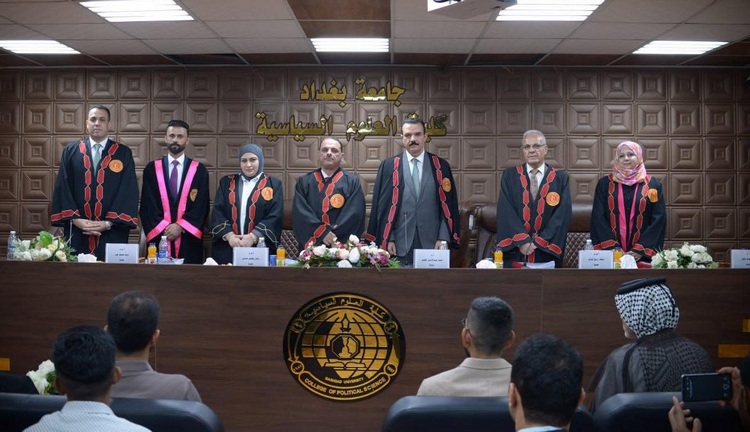The College of Political Science at the University of Baghdad discussed a doctoral dissertation titled “U.S.-China Competition and Its Reflection on the Polarity of the International System (A Future Study)” by the student Hussein Rizk Rashih.
The dissertation explained that U.S.-China competition is one of the most complex competitive relationships in the international system. Both China and the United States are influenced by international environmental factors and seek to manifest elements of their power within it. The United States aims to consolidate a unipolar system and deter rising international powers that seek to alter this system. Meanwhile, China’s options for reshaping and changing the international system include achieving bipolarity (United States and China), achieving multipolarity where China plays a significant role in leading the international system, or seeking U.S. participation in leading the international system while remaining the dominant party. The recent U.S.-China competition has contributed to a reassessment of the future of the international system, particularly regarding American dominance (unipolarity). The rapid decline of the United States in certain areas has led it back to a historical state of contraction, while China challenges the international system led by the United States, especially in the Indian and Pacific Oceans. This structural shift in the escalating U.S.-China confrontation is entirely different from the bipolarity of the Cold War era. Therefore, the U.S.-China competition serves as a lens through which to observe the future of the international system, with the rising China posing a challenge to the United States’ status as a dominant superpower. The researcher was awarded a doctoral degree with a “very good” rating at the end of the discussion, and we extend our best wishes for success to all our esteemed students in their academic and professional endeavors.












